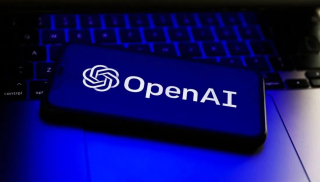Using an AI database named AlphaFold, researchers at the University of Toronto and Insilico Medicine, developed a medicine that can potentially treat liver cancer
The progress of artificial intelligence in these last few years has not been limited, and AI systems are now doing much more than writing essays, reports or assisting users with their internet searches.
According to a recent study by researchers at the University of Toronto and Insilico Medicine, AI systems are now capable of diagnosing and treating different types of cancers. Taking up help from an AI database named AlphaFold, the researchers developed a medicine that can treat hepatocellular carcinoma (HCC), or liver cancer.
The study claims that AlphaFold took up previously unexplored paths to cancer research, which helped the researchers to develop the cancer medicine. Apart from this, the AI system was also able to develop a hit molecule that has the ability to bind targets, making this a significant achievement in cancer research.
Published in the journal of Chemical Science, the study is reported to have developed an even more powerful hit molecule in its second round. Medicines developed by the team of researchers are not approved and are being tested in laboratories.
A subsidiary to Alphabet Inc, AlphaFold’s speciality lies in its ability to predict protein structures. Now cancer cells are known to develop abnormal proteins or even overproduce certain proteins, AlphaFold by detecting these proteins can provide early detection and diagnosis, while also helping pharmacists develop more advanced drugs.
Most cancer drugs companies face difficulties while trying to develop a drug that accurately targets cancer cells and not other healthy cells. However, now equipped with the ability to detect protein structures, these companies can potentially develop more accurate drugs.
“At Insilico Medicine, we saw that as an incredible opportunity to take these structures and apply them to our end-to-end AI platform in order to generate novel therapeutics to tackle diseases with high unmet needs. This paper is an important first step in that direction” said Feng Ren, co-author of the study.
The study is said to have analyzed over 47,000 patients for around six months to five years.
“The AI essentially reads the consultation document similar to how a human would read it. These documents have many details like the age of the patient, the type of cancer, underlying health conditions, past substance use, and family histories. The AI brings all of this together to paint a more complete picture of patient outcomes” said Dr John-Jose Nunez, lead author of the research.
“Our hope is that a tool like this could be used to personalize and optimize the care a patient receives right away, giving them the best outcome possible” said the lead author.
Read more:
A Wharton Professor Gave AI Tools 30 Minutes To Work On A Bussiness Project












